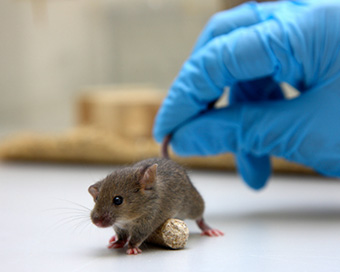Gallery
 PM Modi visit USA
PM Modi visit USA Only the mirror in my washroom and phone gallery see the crazy me : Sara Khan
Only the mirror in my washroom and phone gallery see the crazy me : Sara Khan Karnataka rain fury: Photos of flooded streets, uprooted trees
Karnataka rain fury: Photos of flooded streets, uprooted trees Cannes 2022: Deepika Padukone stuns at the French Riviera in Sabyasachi outfit
Cannes 2022: Deepika Padukone stuns at the French Riviera in Sabyasachi outfit Ranbir Kapoor And Alia Bhatt's Wedding Pics - Sealed With A Kiss
Ranbir Kapoor And Alia Bhatt's Wedding Pics - Sealed With A Kiss Oscars 2022: Every Academy Award Winner
Oscars 2022: Every Academy Award Winner Shane Warne (1969-2022): Australian cricket legend's life in pictures
Shane Warne (1969-2022): Australian cricket legend's life in pictures Photos: What Russia's invasion of Ukraine looks like on the ground
Photos: What Russia's invasion of Ukraine looks like on the ground Lata Mangeshkar (1929-2022): A pictorial tribute to the 'Nightingale of India'
Lata Mangeshkar (1929-2022): A pictorial tribute to the 'Nightingale of India' PM Modi unveils 216-feet tall Statue of Equality in Hyderabad (PHOTOS)
PM Modi unveils 216-feet tall Statue of Equality in Hyderabad (PHOTOS)The Badminton Association of India (BAI) has announced a 14-member-strong India squad for
- Men’s Sr Hockey Nationals to be played in division-based format from April 4
- Mensik denies Djokovic 100th title in Miami final
- KIPG: Son of a vegetable vendor, Bihar’s Jhandu Kumar eyes Worlds, 2028 Paralympics
- Hardik Singh credits hard work and team unity for receiving HI Midfielder of the Year award
- Djokovic, Alcaraz land in same half of Miami draw
Humans can transmit Covid-19 virus to wildlife: Study Last Updated : 07 Oct 2020 03:11:00 PM IST 
File photo In a major study, researchers have found that there's considerable risk that humans transmit SARS-CoV-2, the virus that causes Covid-19, to wildlife.
The study, published in the journal Mammal Review, noted that if SARS-CoV-2 were to infect and spread among wild mammals, it could potentially cause disease in some populations, in turn further endangering already threatened species."We really should avoid turning our pandemic into a multi-species problem," said study lead author Sophie Gryseels from the University of Antwerp in Belgium.For the findings, the research team regularly searched the studies with different combinations of the keywords: SARS-CoV-2, infection experiment, animal model, mammal, susceptibility, ACE2, cell line, coronavirus, wildlife.Thet particularly checked ProMED, a community-driven platform that scans infectious disease news and reports every instance of non-human animals naturally infected by SARS-CoV-2.Though most people very rarely come into close contact with live wild animals, transmission of SARS-CoV-2 from humans could readily occur during (field) activities.Also, if SARS-CoV-2 could be sustainably transmitted among some mammalian populations or communities, this would create new animal reservoirs that could repeatedly source new outbreaks in humans and other animals.The researchers urge people to take sanitary precautions when in direct or indirect contact with wild or feral mammal species to prevent human-to-wildlife SARS-CoV-2 transmission."It's difficult enough to control the SARS-CoV-2 in human populations--imagine what it will be like if it spreads among wild mammals," said study reseacher KU Leuven from the University of Arizona in the US."They could also get sick and form a reservoir from which they can then again infect humans, but we can't ask animals to wear face masks and keep physical distance," Leuven noted.IANS New York For Latest Updates Please-
Join us on
Follow us on








172.31.16.186







